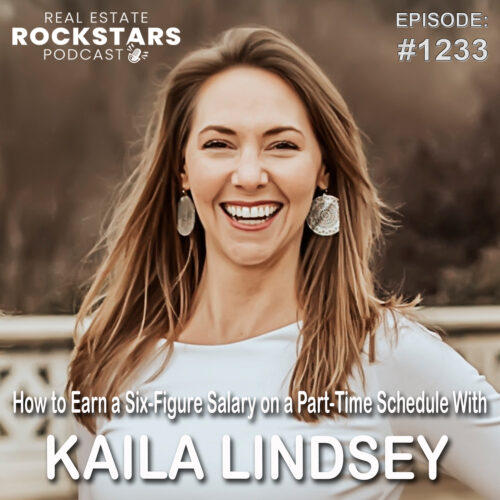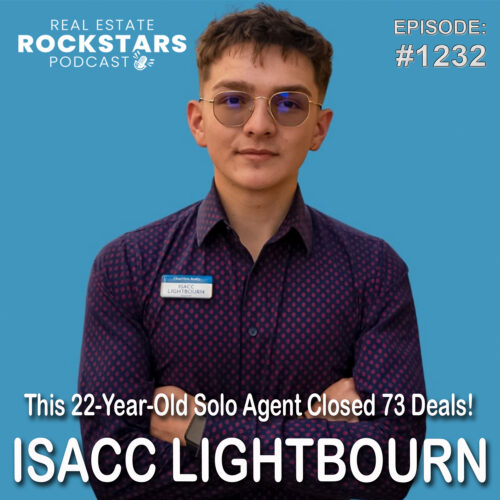- Zillow’s new active rental policy [1:41]
- Could Zillow become America’s biggest property manager? [7:27]
- Picasa appoints new interim CEO [13:21]
- Report shows middleclass struggling to pay rent [19:05]
- How to help renters with bad credit become homeowners [25:11]
- How to break through your goals.
- Plus so much more.
- Grow Your Real Estate Profits with Our Agent Success Toolbox
- Get 6 Steps to 7 Figures by Pat Hiban for FREE
- Get Tribe of Millionaires by Pat Hiban and David Osborn for FREE
Aaron Amuchastegui: Welcome back real estate rockstars to this week’s state of the market. This is Aaron Amuchastegui. I have back with me again, my good friend, Chad Corbett, coming from the East Coast. Chad, how are you doing, man?
Chad Corbett: Doing well, man. Glad to be here.
Aaron: Glad to be here. In what state are you calling, talking to us from today?
Chad: I’m in Virginia again. I had a slight detour to Aspen, but back in Virginia.
Aaron: Yes, Roanoke, Virginia out there, the on East Coast time, as we get to go through the news of the day. We did get to hang out and Aspen a week ago. That was fun, and now I’m back down in Texas. You’re back out over there, and today we get to talk about the news. As we jump into this, there is a really funny thing that happened to me just two days ago that I thought this is actually completely newsworthy. I knew we were going to go over this.
Two days ago, I get a call from a Zillow sales rep and they said, “Hey, Aaron, right now you’ve got 35 active rental listings with us, and we want you to know that we have a new policy. This has always been a free service. You’ve always been able to list houses for rent for free on Zillow, and now you can’t. We’re no longer letting people list houses for rent for free.” Now, they’ve only doing it certain States at a time. They’re going to ramp it out and launch it everywhere. They haven’t done an Arizona yet, but now they’re doing it in Texas, and they said so. As a result of that, we’re going to charge you– I think it was like a $1.10 or $1.20 per property per day, that it’s listed on Zillow if you want to have a listing on Zillow.
Then the guy does a little calculation. He goes, “We can do a one-month contract for this, or we can do a year contract, and I can lock you into that lower rate because next month we’re going to increase it a little bit.” He said, “Your bill for the first month is going to be like $968.” All I could say was like, “Okay. Yes, please sign me up.” Part of me was obviously disappointed, distraught, like, “The businesses isn’t like that,” but it also brought this whole thing of when you have a free service like Zillow had, and you absolutely crush it– They have crushed the rental market. They have all sorts of stuff that they do, but one of the things they do, is when people are looking for rent, they check on Zillow for houses listed for rent. They go find houses listed for rent. They reply back to us. All the people that are building all of the automated showing software, all of them automate their stuff and push their listings to Zillow. We were paying for those services, and now Zillow said, hey, they want to get paid too.
I also had to admire their whole decision. In one instance, Zillow, I don’t know how much money they made yesterday in the State of Texas or what they’re going to make today when they launch that, but they took this free service. They’ve been so, so good at that. They’ve been the category king. They made it so good that we built our business around it. We couldn’t say no to it. Part of me thinks about the idea of Facebook and Instagram someday could say, “Hey, you know what? We’ve been free, but we’re going to start charging you $5 a month or $10 a month.
Chad: LinkedIn did it.
Aaron: LinkedIn did it. That’s exactly right. Have you heard that was going on with Zillow or the- can you think of LinkedIn did it.
Chad: I actually didn’t know that. It’s interesting, you’re more from the investor world, and I think the majority of your career has been spent there. The majority of mine has been spent in the brokerage side. What’s happening now with Zillow, they’ve always been a disruptive company in some good ways, but brokers have been up in arms for years about what happened. They basically created, they focus– What’s interesting about their model, they focus on providing real value to the marketplace that’s absent and getting people addicted to that. Then finally, finding a way to monetize it. Obviously, we all know how they did that in brokerage. What’s really interesting now, is now it’s the investor’s turn to be impacted by the disruption, and whether it’s their iBuyer program or whether it’s something like this, you know now how the brokerage community has felt for the last 15 years.
There’s also two camps like in the brokerage world, it’s like, “Oh, Zillow’s great because,” similar to your argument, “It supports my business.” They’ve created these amazing tools. Then the other people who are fighting that progress and saying, “Well, it sucks because they convinced us to give up our listings. Now, they’re trying to sell us back our own buyer leads off of listings we gave them.” I expect that it will probably gain traction most, usually they’re smart enough. They’re strategic enough that they make sure people are well addicted before they make a move to monetize, and look how quickly you closed. You rolled over because you’re like, “Well, it’s more disruptive for me to have to re-systematize that in my business and find a new way than it is to just pay you for the value of then getting it.
Aaron: I would have to change everything. We’d have to change everything about the way that we do it. It was one of those things where you were like, “Yes, you got me.” They called me. It took them 15 years. I just had to look up, when did Zillow start? Because I was thinking for as long as I can remember, Zillow’s been around. Since 2004, Zillow has let people list houses for rent for free. Then the other side of that goes, one of the things the guy told me- I think he was used to people fighting him a lot more on it. One of the things he told me is like, “Hey, we’ve been given this free service for a long time, and now we need to be able to invest in the product to make it better. Now we’re going to turn that on.” That didn’t make me feel any different. Sure, that’s part of it but the idea of like, “Hey, this has been free for 15 years, so we’ve got a right to charge for it.” Totally.
I think it’s a great business model like that freemium business model or that free forever. I know that a lot of companies out there probably would not have waited 15 years to start charging for a service that other people were making money on. I guess that’s the other thing too. I don’t see them charging users right now, individual people looking for houses, individual people looking for renters. First, they went after the agents and the agents for ads because the agents can afford to pay for the ads because they’re doing that. Now, they’re going toward the listings. Who knows? Maybe depending on how many listings you have, there’s different programs. Man, I thought that was pretty cool.
Chad: They’re making bigger moves kind of quietly like they are now. By the end of, and it’s been a few days since I read the article, I think it’s by the end of 2020, they’ll hold a broker’s license in all 50 States. At that point, they could be in a position to be the property manager. I think that’s probably the route they’re going. I don’t think they want to compete directly with brokerage for for actual sales. This is just my opinion based on what little bit I’ve read about it. I think they’re probably taking that property management angle. We already have the tenants attention. They’re using our app to find the houses. Why don’t you just let us manage it for you?
I think as they’ve seen the opportunity in the real estate investor space, they’ve caused a lot of disruption, they’ve made a lot of money in the brokerage space. I don’t think they’re just coming into that phase of their business where they’re like, “Okay, so phase two is, let’s go after the investor business.” They are getting brokerage licenses in all 50 States. I think a lot of folks are up in arms because they think they’re going to be competing with them from a brokerage standpoint, like on listings. I think that their play is probably more on the rentals. I think they’re trying to become your property manager.
Aaron: They have those property management tools that build in, and they’ve been doing a lot of the different things. Really, they had a pretty good property management tool six months ago, but I didn’t want to sign up for it because I was like, “Hey, am I going to pay the $40 a month for this?” Now maybe this is a way they’re like, “You know what? Everybody will need our other property management tool.” Because it also is going to have pay service, paying rent. Maybe this is just a step to get there. I just did a quick search. There’s almost 18,000 properties for rent in Texas right now that are on there.
Chad: It was $1.10 each.
Aaron: $1.10 each. They’ve just increased their revenue by $200,000 a day.
Chad: $1.10 each per day?
Aaron: Yes.
Chad: Oh, wow.
Aaron: $1.10 each per day. $200,000 a day. Zillow is going to be making the great State of Texas now it’s an extra $6 million a month, and their value just went boom. I should have just hung up and bought stock. Now, it’s probably too late.
Aaron: Let’s jump into something else. Hopefully you liked my personalized real estate news that affected me this week, and I think keep an eye out there, for me that is, big headline news. Zillow ended one of their free services and converted it to a paid service. On Inman, I was just pulling up articles yesterday, and one of the things that comes up, it says, “Vacasa founder stepping down. Former Open Table chief to serve as interim CEO.” Look at this, it says, “Vacation rental giant has appointed former Open Table CEO. What do you know about Vacasa? Is that a company you’ve been following? You know much about them?
Chad: Yes, I see them at– They have a pretty good presence in the brokerage community. They’re one of the first companies, I think Vacasa and Vrolio are the two I’m most familiar with. A friend of mine founded Vrolio, but they’re both competing to be the Zillow. What I would say, the way I look at it at least, I’m not going to speak for their model, but I see it as CoStar or LoopNet is for commercial real estate, they are for vacation rental real estate. They aggregate data, they create that kind of– If you were to merge Zillow, and LoopNet together and have it just be about vacation rental investing, that’s kind of what the platforms are. Obviously, anytime you’re one of the first, one of the startups in a space, it’s difficult and movement is required.
I read this article, I don’t know him personally, but I think it’s probably a matter of a smart CEO getting out of his own damn way. He held his board seat, but he did step down and give the reigns to somebody that probably isn’t as emotionally involved. Probably a big part of that’s probably he might be more talented at raising capital, attracting capital. I think he made a smart move. Everyone’s trying to take their position in that industry. It’s a relatively new thing, just like we said Zillow took 15 years to really find their their stride. Airbnb is relatively new in the world of real estate.
Aaron: Is this a competitor of Airbnb and Vrolio?
Chad: No, it’s not really a competitor. Zillow is not necessarily a competitor to an MLS, it’s supplemental. They can support it. They’re aggregating. They do a lot of different things. One of the things that I love is when they actually list something, they list is as an investment property. When you look at a property, you see the rental details, what’s your ADR, your average daily rate? What’s the the gross scheduled income? What was the occupancy? Things as a commercial real estate investor, things you want to see. Where if you go to realtor.com, or Zillow, or anywhere else, you have the typical fields that are consumer-based fields. They’re not necessarily presented in an investment format. If you go to LoopNet, and look at a commercial listing, you’re going to have more financially driven information. Where if you go to realtor.com, it’s all based on fluff and it’s the specs of the house, and some great emotional language around why you’re going to fall in love with it.
These platforms, they take that vacation rental listing, and instead of trying to force it into a traditional listing platform, they present it to people who are specifically looking for vacation rental investments. They present it in such a way that you can underwrite it pretty quickly. You can take a look and say, “Okay, that makes sense, or that doesn’t.” I don’t think either Vacasa or Vrolio has really gotten into where they know they’re headed. It’s a matter of raising capital and getting things built and moving into the next stage.
Ultimately, I think these could be- they could be the Zillows of that short-term rental world. They’re finding different ways to provide value. One of my favorite things about Vrolio, they have a heat map based on the short-term rental friendliness for the lack of a better term. They basically have red zones where they’re really cracking down on vacation rental. Then there’s the green zone. You can hone in on a market that makes sense to you, then start looking at houses. Then network with other investors. It’s got some components of bigger pockets or connected investors, some of the functionality of like LoopNet or CoStar, and then a UI or a good UX, like Zillow would have. It’s very simple and sleek. I think this is probably a smart move for them to get fresh bud in the CEO seat on that bus.
Aaron: I’m going to keep it closer eye of Vacasa to see what they’re doing. You said last year in July they bought- They must be doing well. They bought Wyndham Destination Vacation Rentals, last year. It was a $162 million- or Wyndham Vacation Rentals was a company under the Wyndham brand. Vacasa bought it for $162 million 6 months ago with the idea they were going to be adding 23,000 vacation rentals to their portfolio. They are doing big things that makes sense after you’re doing big things acquisitions like that, that they’re bringing on a new CEO and new people. Who knows? I guess taking the people from other businesses that have done big things before, and taking a guy that was working over at OpenTable. OpenTable is a business that- it was started with a simple idea. Maybe he’ll be able to do the same in vacation rentals.
Chad: I have to say, the last paragraph, I was just looking at. This is a quote, “On track to exceed $1 billion in gross bookings and excess of $500 million in net revenue in 2020.” It’s a pretty profitable business.
Aaron: Everybody goes, “Yes, that’s something I want to be a part of.” That’s how you get a CEO from OpenTable to come over. Big news for us to be watching with that. More state of the market type news. Last week on MSN Money, an article came out that I sent over to you. It says, “Even the middle class is having trouble paying rent now.” Which this is not what we’ve been hearing. It’s been seen like, hey, the markets good, life’s good. Everybody’s been crushing it. It says, “Being able to pay for housing along with the rest of one’s everyday expenses, is a challenge for many Americans increasingly, and includes middle-income Americans. New report from the Joint Center of Housing of Harvard University calculated 10.9 million renters spent more than 50% of their income on housing in 2018.”
They said that’s also one in four renters. One in four renters in the US spending more than 50% of their their income on housing. Have you noticed that out there? If you think about what does– what do you think about that news?
Chad: I have, and it’s interesting, there’s such good news and such good market sentiment as far as sales goes, home-ownership. If you look, home-ownership is really affordable, thanks to interest rates being pressured down. What’s not happening is you see price appreciation. We talked about this last episode you and I did together, 75% appreciation, I think it was, over a 10-year period, but it’s this huge appreciation. That comes with lowered interest rates. Actually, it’s cheaper to own a home than it would have been just three years ago, because rates have come down in a lot of markets.
With rent, what we’ve seen is inflation has driven those prices, like rent prices have just been increasing. I think, coming off of 2008, they haven’t really cooled down in most markets. They just keep going higher and higher. If you look at the affordability index to buy a home, it’s actually quite affordable right now. The problem is most people, their wages haven’t grown, and rents have just continued to just skyrocket, but their wages haven’t kept pace. It’s becoming harder and harder for them to afford what they’re renting, and because their wages aren’t growing, it’s almost impossible for them. Because their debt to income ratio, they can’t get qualified for a mortgage. There’s so much good news out there. I’ve looked at this. I’ve seen people struggle through this.
There’s so much good news on the real estate market, but when people are talking about that, they’re talking about home ownership. When you look at the affordability, and like I said, I spend quite a bit of time in Toronto, it’s really bad. People are spending over 50% of their income on rental housing, and a lot of major MSAs. It’s a real problem. I think a lot of the good news overshadows it, but for the average American, it’s pretty tough to get by. I think average if you look across the country, and as a blended set, it’s like on average, Americans are spending 37% of their gross pay on on rent. You think about that as a family with four kids. You’re spending over a third of your income just on rent before you get anything else. It’s tough to get by, right?
Aaron: Yes. What are you going to do for the other ones? One in four renters, more than 50% of their income on housing. For agents out there listening, there’s got to be some opportunity there for a win-win. We’ve always seen the ad or the pitch that says, “Hey, you can buy a house for less than you’re renting for.” I saw a slogan the other day that said, “You’re already paying a mortgage, but right now it’s your landlords.” You’re paying your landlord’s mortgage, not your own.
Take that as an important kind of state of the market, not the same news we’ve been talking about lately. We’ve been talking about home prices increases, things like that. Saw that we had such a big hit on affordability for rents. I think that’s important for us to be talking about too. Try to, realtors out there, find your local market.
Aaron: Chad, we got time for one more piece of news.
Chad: Before we move on, I want to like instead of just– I’d like to leave you guys with at least a thought, but maybe get your gears turning if you’re in real estate and you have people who want to own a home but aren’t yet qualified, and they have to be renters. If you educate yourself on a lease with option to purchase, you can put that– I have a program where I had a 95% success rate with lease options. Nationwide, it’s about a 15% success rate. It’s people putting the wrong people in the wrong properties. If someone has everything there that they want to be a homeowner but they have that that roadblock of financing right now, what I do? Get them over to your mortgage broker, figure out, put the red flags up, why don’t they qualify specifically? Put them into professional credit repair. Get them into a lease, and have a separate option to purchase. Then they don’t have to move again, and they can get credit or the option fee they put down can become their down payment.
I had a lot of success with this where when somebody called me, and they couldn’t qualified and say, “Well, let me know when the lender says you’re good.” I found a way, I held myself accountable. I found a way to get them into a home that they loved. A lot of times especially if you’ve got deals that you’ve reduced the price and it’s just still not moving, this is a great tool to get sellers out that have marginal or thin equity. You can get them because while you’re getting your buyer prepared for financing, you’re also paying down the principal on the mortgage.
A lot of times if you have a thin deal over a 12 to 24-month period, you can solve two problems for two clients and create transactions. I think a lot of realtors are quick to just turn and say, “It’s a numbers game, let’s get onto the next one.” Where if you just think creatively and you understand creative real estate solutions, you can create a win-win for both of those people. With rents climbing like this, people don’t have to keep going from rental to rental to rental, and not being able to buy. They do need a professional that can step in and help them navigate that because it’s not exactly simple for someone who’s not experienced in real estate. Rather than just talk about it and leave you with nothing, I would encourage you.
If you’re listening to this and you’re thinking, “Wow, that’s hitting close to home. It’s like that in my town.” Think about the last 10 buyers you had to say, “Sorry, you don’t qualify for financing,” and the last 10 sellers that you said, “Sorry, we can’t drop the price unless we do a short sale.” You can create that transaction by raising your own skill set.
Aaron: That is such a good point, Chad. We’ve got to get you to record one of the courses over in Rebus over that. That was one of things you and I were talking about, maybe a couple of months ago. You had talked about that you were doing that as a businesses plan or you had done it previously. In your market, it’s not really there, but the idea of helping buyers get qualified to buy and/or finding that win-win for sellers that are like, “Hey, let’s do a rent-to-own type of thing. Rent-to-owns of the past, at least what I always heard of rent-to-owns, it felt like it was an unsafe thing because the people buying the houses never won.
When you’re talking about that you have a 95% success rate of these people getting to do it, man, I cannot wait to hear more about that, about how to get those, especially when we look at those different numbers. Because now you’re taking that pitch, and you’re saying, “Hey, guys, your rent’s 50% of your income. You could buy a house so much bigger.” They go, “Well, I’m not qualified because of this and this and this.” You’re like, “Well, you are paying 50%, so let’s see what we can work out.” You’re telling us there’s probably some solutions out there.
Chad: Just another idea, if at least with the option to purchase, if that goes over your head. Go find a list of free and clear assets, or go find a list of homeowners that haven’t sold in the last eight years. My light’s going dim. Find a list of homeowners with 100% equity, call them, list the property with owner financing, and then go get your buyer in there. There’s tons of buyers out there like this, tons of renters out there that could be buyers if they just had the right leadership from a real estate professional. They have the down payment, they can afford first month, last month’s rent. They’re spending 50% of their income, so over a few months, they can save up– What they save from not paying in rent, they can- if you could even work out a payment agreement.
There’s a lot of people out there with free and clear assets. I own a company that specializes in probate, and 80% of American senior citizens are in real estate. 70% of it or between 68% and 71%, it fluctuates, is free and clear. There’s lots of people out there with tons of equity that have extra houses they don’t necessarily need right now. You could go find the inventory, get it listed with owner financing in place, and then take it to these renters who are paying 30%, 40% more than they would be paying on an owner finance mortgage. Then get them over to your attorney, show them how to protect it with a first position mortgage, and you created a transaction out of thin air. You took somebody out of that rental pool that’s not gaining any wealth, and you took a seller and you’re going to maximize the equity that they’ll get from that asset.
There’s lots of things like that that you can do to really step up and make a difference. What we’re calling a housing crisis, we all like to talk about it and bitch about it, but what are we doing about it? I think as a brokerage community, we still have room to step up and provide value that the marketplace isn’t used to getting because, typically, it’s only a few investors here and there that do it. The better we educate ourselves, the bigger the difference we can make in our communities.
Aaron: How can we follow that? Chad, I love the challenge that you gave everybody on how do we not only just take the news and hear it, how do we do something about it? That’s going to wrap up today’s week of State of the Market. Hopefully, you guys had a ton of fun and learned a lot, and maybe, we challenged you and came up with some ideas of how you can not only take the fun, interesting news at the beginning but how you can take some of that news to better your business and your career out there.
Go ahead, if you like this one, we need lots of reviews. Go give us some more reviews online. Come and find us on Instagram @rerockstars. We have a Youtube page, Real Estate Rockstars Radio. You can find Chad at all the leads. You can find me on Instagram and all sorts of other places, too. hibandigital.com, make sure you subscribe. Tell a friend. Get us a good review, and we’ll talk to you again next week. Thanks.





